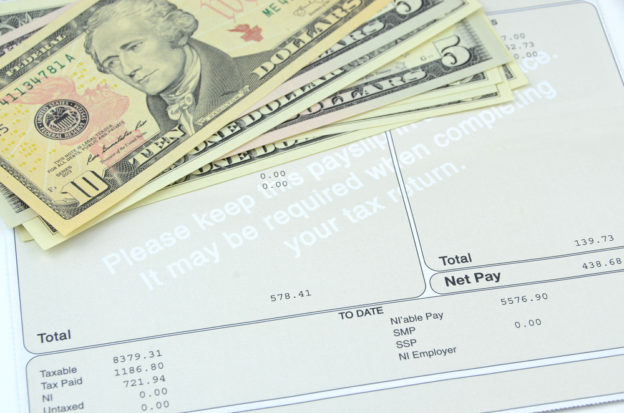
Juan Obregon
By Juan Obregon
Organizations commonly require employees to be employed on the date a commission or bonus is paid to receive the commission or bonus. The Colorado Department of Labor and Employment (CDLE), which interprets and administers Colorado’s Wage Act, recently indicated that practice is not permissible, which means employers will need to revisit their bonus agreements and commission plans sooner rather than later. The failure to heed the CDLE’s guidance may result in costly wage claims.
Overview
The Colorado Wage Act requires employers to pay employees the wages and other compensation they earn. Non-discretionary bonuses and commissions are considered wages. Under the Colorado Wage Act, an employee is not entitled to wages or compensation unless such amounts are “earned, vested, and determinable.” The question, of course, is: when are bonuses or commissions earned, vested, and determinable?
Typically, a written agreement, policy, or plan will spell out exactly what criteria must be met for a bonus or commission to be earned and vested; the bonus or commission is “determinable” once the parties are able to identify the amount of the bonus or commission at issue. Absent a written agreement or similar document, the employer’s past practice will often control. Employers generally have the ability to establish the criteria that must be met for an employee to “earn” a bonus or commission. For example, a bonus might be based in part on company productivity and in part on the employee’s sales. Similarly, a commission is often calculated as a percentage of a sale, conditioned on the customer’s payment and expiration of any cancellation period.
Importantly, bonus agreements and commission plans should address what happens when an employee leaves the company, either voluntarily or involuntarily. Often, employers require employees to be employed on the date any bonus or commission is to be paid to actually receive the bonus or commission. New guidance from the CDLE, however, takes aim at such provisions.
CDLE Provides Guidance on When Wages Are Earned
In Interpretive Notice and Formal Opinion (INFO) # 17, the CDLE notes that the employer “crosses the line” when inserting a condition that equates to an employer “exempting itself from its duty to pay wages it owes to an employee.” According to the CDLE, requiring an employee to be employed on the date a commission or bonus is to be paid is improper if all other conditions to earning the commission or bonus have been met.
By way of illustration, INFO # 17 describes a scenario where an employer requires an employee to be “‘an active Team Member at the time of payout’ to receive bonuses.” The employer then fires the employee the day before it pays out bonuses, and then refuses to pay the bonus the employee would have otherwise received had they remained employed. Under these circumstances, when the amount is determinable and the employer agreed to pay the bonuses without providing any additional conditions beyond employment as of the date of payment, withholding the bonus equates to “manipulating contractual language to avoid paying rightful wages to employees by conveniently terminating them shortly before their payday.” In other words, employment status alone is not a “valid condition for paying bonuses.”
In issuing this guidance, the CDLE has suggested that certain conditions, e.g., continued employment as of the payment date, are invalid, while allowing other conditions and criteria for earning bonuses and commissions to be set by the employer. Interestingly, had the CDLE limited its guidance to situations in which an employer terminates an employee simply to avoid paying a bonus that was otherwise earned and payable, it would not be controversial.
However, by suggesting that continued employment as of the payment date cannot be a lawful condition to “earning” a bonus or commission, the CDLE may have opened the door to some unintended consequences. Among things, imagine a scenario in which a salesperson closes a sale with recurring revenue. Presumably, the company would not be required to continue to pay the employee commissions on such recurring revenue after the employment relationship ends, even if the employee would have received commissions during his or her employment. Unfortunately, INFO #17 opens the door to an argument that such commissions must be paid even after the employment relationship ends.
Practical Tips
It remains to be seen whether courts will adopt or reject the CDLE’s interpretation of the Wage Act in INFO #17. In the meantime, employers should carefully review their commission plans and bonus agreements. Among other things, the document should:
- Clearly articulate when a bonus or commission is earned and vested.
- Describe what happens to any bonus or commission upon separation. Based on INFO #17, it is risky, to say the least, to not pay a bonus or commission that is otherwise earned, but for the fact that the employee quit or was fired before the payout date. For example, if bonuses are based on productivity during a calendar year, but the employee leaves on January 14 (just before the bonus is paid), the employee is still entitled to the bonus (assuming all other conditions are met) according to INFO #17.
- Make it clear that an employee cannot earn additional commissions or bonuses once his or her employment ends.
Multi-state employers should also review applicable law in the jurisdictions where it has employees, as the law in those jurisdictions may differ from Colorado.

